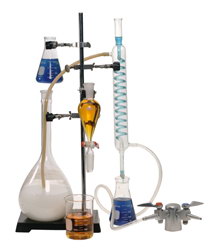The road to sustainable chemistry
Advances in chemistry and knowledge-based materials are enabling Europe's researchers to create more innovative products and become more competitive. The EU-funded project 'Conference on knowledge-based materials and technologies for sustainable chemistry' (Sustainchem) organised a dynamic science conference on sustainable development to exploit new materials and technology in chemistry and chemical engineering. Linking the Baltic region with northern Europe, the conference brought together the University of Nottingham (UNOTT) from the United Kingdom with the University of Tartu (UT) and the Tallinn University of Technology (TTU), both from Estonia. Main topics investigated included new solvents and reaction media such as supercritical fluids, ionic liquids and fluorinated solvents. They also covered reactions in new solvents or mixed solvent systems, particularly the newest class of solvents where research was still lacking. In addition, the conference investigated the phenomenon of catalysis, specifically development selective catalysts for new processes to replace stoichiometric reagents and unnecessary derivatisation. It also looked at biocatalysis and use of enzymes in new areas of chemical synthesis. Another important topic was nanotechnology to create more precise and sensitive measurements to model reactions and processes. Strong marketing and advertising initiatives ensured the attraction of 180 participants from 25 countries to the conference, including graduate research students. The event produced 50 oral presentations, 62 poster presentations and a one-day workshop for early stage researchers (ESRs), as well as the conference's abstract book. Many conference lectures were published in Green Chemistry after meticulous peer review, guaranteeing high level research. These dissemination events helped ensure that modern sustainable chemistry has become a reality in the EU.



